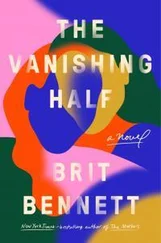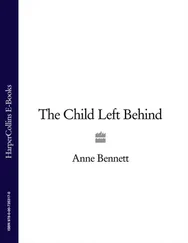Of course, it didn’t quite work out like that. Within a couple of years that side had been ripped apart by defections to rugby League. Jonathan went. So did Hadley, Phillips and Moriarty. Dai Young, Stuart Evans, John Devereux, Allan Bateman and Mark Jones went and others followed in later years like Scott Gibbs and Scott Quinnell. The game was changing, more demands were being made of players and those running the show in Wales should have responded. But the attitude at the end of the eighties was the same as it had been at the end of the seventies. They just believed that Wales had a God-given right to succeed and that if one bunch of players disappeared then another gang would simply carry on the success. At the end of the seventies a generation disappeared because they retired. At the end of the eighties it was even worse in many ways, because the players who went off to play rugby league had not even reached their peak. But the outcome was the same. Welsh rugby was exposed for not having the foresight to look farther ahead than the next payday from a full house. The WRU has often tried to fend off the blame and point the finger at the clubs in Wales. But from my experience, the club scene had not changed. Playing in Welsh club rugby in 1974 was no different to playing in 1981. It was still hard, physical, intensely tribal, but with skilful players who were committed to the game and to the success of their clubs. So the breeding ground was there. It was the development and organisation of that talent that went awry.
When Wales began losing, a kind of panic set in. In the years between 1974 and 1978 the team picked itself. The coaches only had to deal with minor adjustments because of form or injuries and the changes were minimal. But when Wales started to lose consistently a frantic search began for the new saviours. There would be six or seven changes after a defeat with a handful of new caps. It was as if the selectors thought that the winning team was there, it was just that they hadn’t stumbled across the right combinations of players yet. There was never any appreciation that the problems ran much deeper.
Instead of clutching at straws by picking ordinary club players and expecting miracles, Wales should have been looking at the fundamentals. Why were fewer kids playing the game at weekends? Why were teachers turning their backs on running sides? Why were some clubs no longer running youth teams? Such problems were never addressed. There was no one within the WRU with the vision of someone like Carwyn James. Carwyn had proved his greatness with Llanelli and with the Lions. Had he been given a role by the Union then he would have seen the bigger picture. He would have identified the problems that were being stored up – the fact that there was nothing to fall back on at the start of the eighties once the top layer had been removed. Ray Williams was doing sterling work in the seventies with players at the top level. But beneath that, nothing was being nurtured. There was no continuity, no process, just blind hope.
The 1988 Triple Crown, far from being the start of a new dawn, was just a temporary flash in a long winter of darkness. In 1999 Wales went on a ten-match winning run under the coaching of Graham Henry. Again, though, it was a blip, a temporary recovery that eventually faded out, to be followed by more grim results and a further decline in our status around the world. Everyone remembers the highs, but they have been fleeting moments over the past 20 years. Every Welshman remembers the horrific defeats, such as the 1998 thrashings by France, England and South Africa, the shameful tour of Australia in 1991 where Wales lost 63–6 and then brawled among themselves at the post-match dinner. But so many games between 1980 and 1987, and then between 1989 and 1998, have not lingered long in my memory. These were unremarkable years filled with unremarkable matches. They are the lost years in more ways than one.
‘Ladies and Gentlemen, here to represent Wales as we look forward to that country hosting the 1999 World Cup … Mr Vernon Pugh.’ I remember hearing those words over the tannoy at a Test match in South Africa in the build-up to the 1999 tournament. Looking a little embarrassed, Vernon Pugh, one-time chairman of the Welsh Rugby Union, then chairman of the International Rugby Board until his untimely death in 2003, crept on to the field for the presentation intended to launch the countdown to the finals. I always had a great deal of respect for Vernon. He was a very able administrator, a bright, intelligent and likeable man, and it reflected well on Wales that he had the top job in world rugby. He also played a key role in making Wales the primary host nation for the 1999 World Cup, and it was an enormous loss to the game in Wales, and worldwide, when Vernon died at the age of just 57 in April 2003. The sport lost a statesman and a pioneer and Wales lost its most influential voice. But as he made his way to the centre of the field, I could hear hundreds of South Africans around me asking, ‘Who’s he?’ It was a fair question.
Vernon was a leading QC who had made his name within Wales by writing a report on the Welsh involvement in an unofficial tour to South Africa in the 1980s. He had then gone on to become WRU chairman after the grass-roots ‘coup’ that had swept former secretary Denis Evans out of office. From that position, he had strode on to become chairman of the IRB, the world game’s governing body. It was Pugh who had declared the sport professional following the 1995 World Cup, bringing to an end the ‘shamateurism’ that had been the prevailing status of the game in so many countries.
So Vernon was a Bigwig with a capital B. But to the crowds of South Africans that day, for a presentation that was holding up a Test match, he was, understandably, Vernon ‘Who?’ rather than Vernon Pugh. They didn’t know him from Adam.
Then it struck me: this was the state Welsh rugby now found itself in. We had no world-famous players, so we had to make do with our administrators. This is what we now gave the world – law craft rather than rugby brains. Of course, it would have made far more sense to have had Gareth Edwards represent Wales and I’m sure Vernon would have much preferred it. He needn’t have looked so sheepish. But Welsh rugby had spent 20 years ignoring the seventies generation, so there was not much chance of their rediscovering it in time for the 1999 World Cup. To be fair, Edwards and a lot of other Welsh greats did indeed show their faces at the opening ceremony. But it perhaps sums up the past 25 years in Welsh rugby that a lawyer should have represented Wales that afternoon in South Africa. Legal wrangling and verbal dust-ups have certainly dominated over the rugby out on the pitch.
Vernon manfully did a difficult job heading up Welsh rugby in the 1990s. There often wasn’t much to be proud of, but he showed great negotiating skills and, unlike some of the men in suits in the game, I always felt he had a good understanding of the sport and the people who played and followed it. It was certainty a loss to Welsh rugby when he decided to step down as WRU chairman.
That left the way open for Glanmor Griffiths. Glanmor had been treasurer of the Union for a while and seemed to do the job just as you would expect any former bank manager. Nothing too flashy, nothing very imaginative, but he seemed to keep the small clubs happy and balance the books. Suddenly, though, this bloke was both chairman and treasurer of the WRU, and chairman of the Millennium Stadium pic. He clung on to all those areas of influence for a long time, which I always felt was wrong. Until he eventually decided to stand down from the WRU in 2003 he seemed unwilling to delegate, but you cannot give all that power to one person. It creates suspicion and grounds for resentment and mistrust. Glanmor had too many conflicts of interest for along time and I know of many other ex-internationals who felt the same way. Gerald Davies and Gwyn Jones were part of a Working Party that said as much in their report of 2001, but unfortunately not enough of the clubs in Wales backed that conclusion.
Читать дальше












